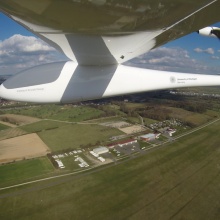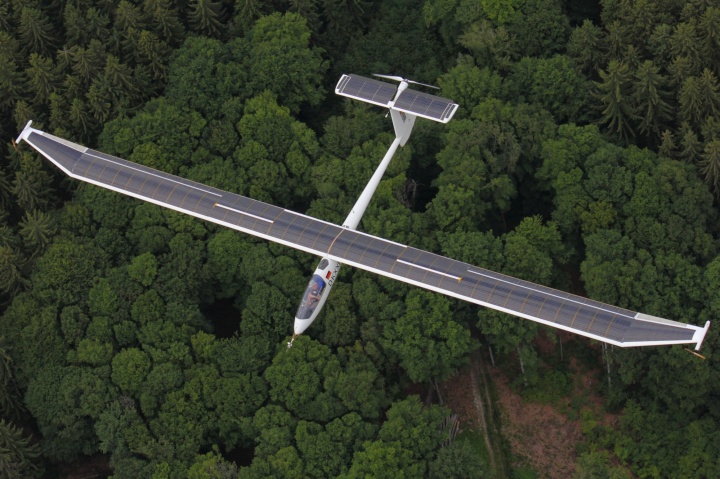The Institute of Flight Mechanics and Control (IFR) at the University of Stuttgart is leading a project to establish test fields for energy-efficient, electric and autonomous flying. The institutes of Aircraft Design (IFB), of Aircraft Systems (ILS) and of Navigation (INS) are also involved. The two test sites intended for this purpose are located at the airfields in Lahr in the Black Forest and in Mengen near Sigmaringen. The Baden-Württemberg Ministry of Economics, Labor and Housing is funding the project with EUR 1.3 million.
Flight taxis take people to airports, drones deliver packages: Before that becomes a reality, new technologies need to be tested in a suitable test environment. After an extensive site analysis, the preferred locations have now been named. In the following months, details will be planned and the construction of the test field will be coordinated.
Test fields for urban and autonomous flying
The requirements concerning the test fields are diverse. The two selected sites in Baden-Württemberg meet these demands. The test field at the Lahr site will be built specifically for urban flying, while in Mengen-Hohentengen the focus will be on autonomous flying. “The two locations are excellent for the relevant tasks and complement each other in an ideal way. In addition, this approach enables us, in Baden-Württemberg, to react flexibly to future developments,” says Project Manager Prof. Walter Fichter from the IFR.
Following a detailed preliminary study of the project, the research team is currently working with the two airfield operators on the practical development. The Regierungspräsidium Stuttgart (a regional authority in Baden-Württemberg) supports them in the legal framework. The companies Thales and Droniq (a start-up company of Deutsche Flugsicherung, the German air traffic services) are involved in the establishment of the ground infrastructure, which includes, for example, components for monitoring, communication and aircraft location in low-altitude airspace. In addition, operational procedures must be defined in such a way that they do not affect regular air traffic. The actual on-site testing and trial operations are scheduled to commence this year. “We are working on the test fields in cooperation with various partners from research institutions and industry. In this way, we promote the mutual exchange of experience and ensure a high quality of knowledge transfer,” says project coordinator Vincenz Frenzel from the IFR.
Autonomous flying as a future-oriented topic
Electric and autonomous flying is a future-oriented topic on which the University of Stuttgart has been researching for years. The area of application is currently expanding very dynamically, ranging from small surveillance drones flying out of sight to delivery drones and flight taxis.
This is linked to technological innovations, especially with regard to the degree of automation, which ultimately leads to autonomous flying, as well as novel aircraft concepts based on distributed electric propulsion systems. The control of air traffic and the associated procedures for location and communication are also essential here.
With a suitable test field, scientists can test these technologies on real aircraft and demonstrate overall systems in practice. This is an important prerequisite for international competitiveness. In this respect, such a test field is also an important building block from a scientific point of view, for strengthening aviation technology and the topic of 3D mobility at the University of Stuttgart nationally and internationally.
The University of Stuttgart has developed the concept for this project together with the Ministry of Economics, Labor and Housing Baden-Württemberg, the Forum Aerospace Baden-Württemberg (LRBW), the Fraunhofer Institute for Industrial Engineering, the State Agency e-mobil BW, as well as various industrial partners.
Expert Contact:
Prof. Walter Fichter, Institute of Flight Mechanics and Control, Pfaffenwaldring 27, 70569 Stuttgart, T +49 711 685-67060, e-mail
Vincenz Frenzel, Institute of Flight Mechanics and Control, Pfaffenwaldring 27, 70569 Stuttgart, T +49 711 685-61562, e-mail



